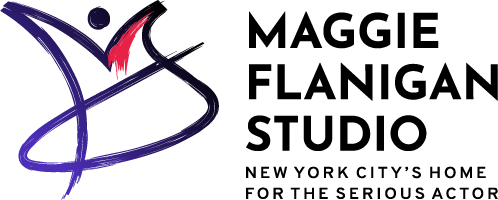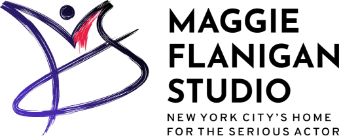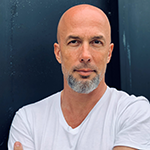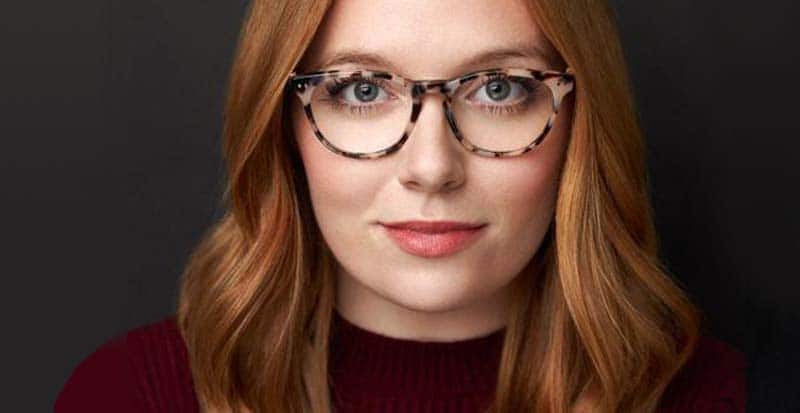APPLY FOR ADMISSION
FIRST YEAR MEISNER ACTING PROGRAM

BEGINS
SEPTEMBER 10TH

Call To Schedule an Interview
(917) 794-3878
Getting Past Emotional Blocks
The 18-month acting program at the Maggie Flanigan Studio prepares professional actors for enduring acting careers. In this interview, Allison McHugh talks about how the Meisner Training has helped her get past emotional blocks.
18 Month Acting Program Interview with Allison McHugh
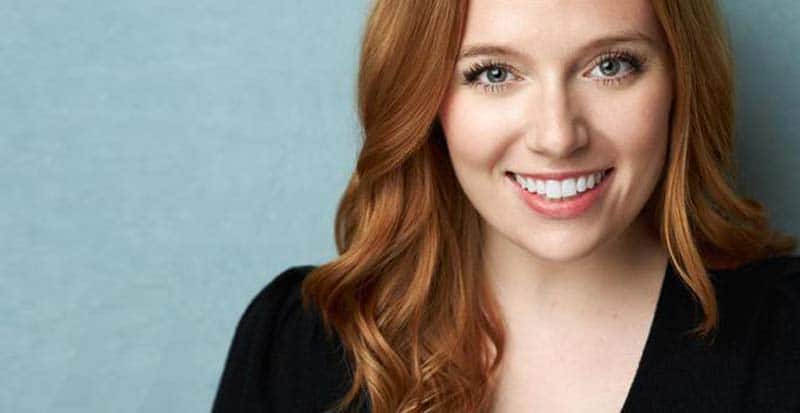
18-month Acting Program – Allison Mchugh – Maggie Flanigan Studio (917) 794-3878
Katie: Before you started the 18 Month Program, what did you think it meant to train as an actor?
Before I started the 18 Month Program, I had honestly no idea what it meant to train as an actor. I’ve taken comedy classes; I did all the Upright Citizens Brigade training. I’ve done a couple of one-offs like, “This casting director is teaching an intensive.” I did a few of those. I’ve always wanted to act and then I never really, indeed, dared to say it out loud until the pandemic.
Once I finally got that courage and was doing these one-off casting director intensive classes, I realized how much I was missing the fundamentals of acting. I’ve been on stage before, I do comedy, but there’s so much more. In those short four-week courses, I learned that I had no idea what I was doing. I knew I was missing a huge chunk; I didn’t know how much I was missing.
Q: What do you think it means to train as an actor now that you’re about halfway through the program?
Now that I’m halfway through the program, I truly realized that I had no idea how freaking hard it was. The levels of vulnerability you have to get to in first-year, you break down all of these barriers, I guess, is the word.
All these emotional blocks that we’ve learned throughout our entire lives, which I didn’t even know I had, and then in the first couple of months of the first year, Karen would bring out specific just ways that our body would tense and all these things. I was just like, “Oh.” The things I’ve done my whole life, and I didn’t realize that I had been doing them until you have to start unlearning those things. There’s just so much that goes into it emotionally and physically that when you’re in it, you begin to understand it, but before that, honestly, you have no idea.
Q: Since this is your first time committing to a training program, was this your first time explicitly working with the Meisner Technique?
Yes. This is my first time working with Meisner. When I was looking at classes, I had gone to a couple of one-offs places that I talked about. They had talked about specific techniques; I met friends through UCB who had talked about particular methods and read a couple of books. Meisner was the one that stuck out to me the most. I may be, without understanding it at all, understood it the most, or so I thought. There was a bit of a gravitational pull towards it, and then I had a perfect friend who pushed me in this direction.
Q: What about the Meisner Technique that you’ve learned so far from the first year and the first few months of the second year resonates most with you as an actor?
I think emotional preparation is the wildest journey. It’s so crazy that you go so many different places. I have this tendency to go back in time, and then I imagine things differently from how they happen. It’s a mix of reality and fantasy. I genuinely have no idea what my brain is doing when it’s doing it, but it’s crazy. A lot of my emotional prep in the first year for my scenes was devastation.
I do comedy, I’ve always been a light-hearted person, and I try to laugh everything off. So prepping for devastation, I had to dig and hurt my feelings, which was hard to do, but also when you’re just having an emotional release like that, it was so cathartic.
I said Karen was teaching us how our body tenses differently, and I would always get the knot in my throat when I’m about to cry. Even if it’s not, always be like, “Why do I have this knot in my throat? I feel like I don’t need to cry.” It was my body teaching me to shut down my feelings. So when I started unlearning how to do that and just letting it go, it was an unforgettable cathartic experience.
Q: What has the transition been like for you, starting in January online, coming now in-person the second year? How is the online versus in-person made a difference for you as well?
I think it’s a little hard to distinguish because first-year is so different from second-year. Is it because it’s in-person, or is it different? Being able to do first-year online started this whole journey for me. If I hadn’t been able to do that, I don’t know if I would have picked up these classes in-person later. So being able to have the flexibility of, “Hey, let’s start and work this in your schedule,” was helpful.
Then I also think it gave me an excellent understanding of, “Okay, you have some fundamentals, now really put them to work, get in the studio and be next to people and be in the same space as them.” So it is night and day, being in the classroom. I’m so thankful that I can be in the classroom now because I feel like I learned a good amount in the first year, but pardon my French, holy shit. It’s so much difference in here. It’s so much harder, but it’s honestly the first real challenge that I’ve had in any of my learning life, which is really hard but very rewarding.
Q: A big part of the experience at the studio here is also the sense of community. How has that been for you?
It’s crazy because there are only four people from my first-year section, including me, in person this year. After all, we had a ton of LA, Austin, which is fantastic. First-year there were people from all over the country, and the first day of the second year, we were like, “Oh, we’re outnumbered. There is a large portion of this class that already knows each other. We’re the underdogs.” Then by the end of the first class, that was utterly broken down; it didn’t feel like that. We already had a group text going. There’s no issue with that.
Then also, we all still use our first-year group chat too, to check-in. We know it’s different, but it’s still the same, especially when we got our first scenes; it was like, “Who has what?” We’re all in the same boat, and we get emotional in there, and we break down, and everyone is so good about it. It feels like what happens in Vegas stays in Vegas. What happens there stays there, but then you come out here, and everyone hugs each other. It’s just a cheerful group of people.
Q: How do you feel changed as an actor and person?
Yes, this one’s wild for me. When I met with Charlie, November or so of 2020, I was getting emotional talking to him because I couldn’t even get the words out that I wanted to be an actor. I grew up in North Carolina, and that’s just nothing there. It isn’t, but it’s just not. I’ve lived in the city for at that time three and a half years, and I’ve done comedy. I knew I could do that, but for me, there was just such a, “Oh, you do comedy? Or you are an actress?” They feel so different. Some people look at them the same, but I could not cross over into that thinking.
Even doing the first year, it was like, people would– talk to them at the theater. I’m like, “Oh, come to my show,” like all this stuff, and they’re like, “Oh, she’s an actress,” and I’m like, “Oh, no, I do comedy.” And there, “You’re an actress in doing this?” I’m like this is full-blown– I have to continue to allow myself to believe. Still, I think I have a bit of imposter syndrome. I’m like doing the work, but I am like chipping away at the fact that I built up in my head, “Oh, this can’t happen. This can’t happen. This can’t happen”.
I’m like, “No, I’m here all the time. I’m putting in the work; I’m doing the homework. I’m trying my hardest to make a career out of this. That’s being an actor.” So it is a complete mindset shift because if you would ask me that a year ago, I probably would’ve cried and said, “I’m not an actress, but being able to in doing the work, I’m doing it,” so own it.
Q: How would you describe working with Charlie as a teacher?
Charlie is the heart. He’s so hard on us, but in the absolute best way.
When I get hard feedback from Charlie, I trust it, and I know it’s coming from the right place. He wants me to get better genuinely, or he would not put in the time and effort to get to this feedback. I have been a sensitive person my whole life, and learning to take feedback from him will be so helpful and has already been very helpful.
Q: What would you say to someone thinking about signing up for the 18-month program, but they think it’s too late or they don’t have time or the money?
Just freaking do it because I told my sister last fall, I was like, “If I don’t do it this time, punch me in the throat.” I’ve talked about it so much, and I’d built it up in my head that it’s like never going to go anywhere, but then you don’t stop thinking about it. It’s like, “Why don’t you try and then see where it goes?” Because where I am now is so different from where I was a year ago. My whole mindset is different, but I was afraid to try the money; it is worth it. It’s something that I have to think about every month like, “Who?”, but you know what? This is the best money I’m spending. I’m spending it on what I want to do.
I switched my job so I can have the flexibility to do this. After four years of thinking about it, it’s just like, “It’s time, do it and make it happen,” because all you’re going to do in three years is want to do it again then. If you keep putting it off, you’re putting it off. You’re going to do it eventually. Is there anything I didn’t ask that you want to mention or talk about or think is essential for folks thinking about turning up to now?
I love that I had Karen in the first year, and I have Charlie now. They’re so different. I loved when Charlie contour first-year classes because it would be interesting to see how he worded the same things Karen was telling us. For some people, it was like, “Oh, I get it.” It just had two perspectives, but saying the same things in different ways was helpful. It’s just like that growth. You can see it when you have two other people saying the same things in different ways. I liked that. Karen is just an angel.
An Acting Studio for Professional Actor Training
Learn more about the Maggie Flanigan Studio by visiting the studio website. https://www.maggieflaniganstudio.com/new-york-ny Actors who are interested in interviewing for acceptance into the studio acting programs should apply online and call the studio at (917) 794-3878 with enrollment questions.
Recent Post
STUDENT TESTIMONIALS
“I was placed in the intense reigns of Charlie Sandlan. I became a better artist, actor, friend, sibling and daughter because of the studio. Even now, I crave the studio every day. What I learned is present in my work every day. I truly believe in everything they stand for.”

“Maggie taught me that I could control my work, my acting, and to throw all of the bullshit out that I had in my head about ‘what I should be doing’ and to just listen and respond honestly, in the moment. She gave me a craft. She is, quite simply put, THE BEST.”
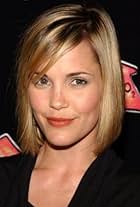
“Maggie Flanigan taught me the true meaning of artistry, passion, and professionalism. I am certain that I continue to work as an actress because of my training with Maggie. At every audition and every performance, her guiding voice is with me. It is a gift beyond measure.”

“Maggie Flanigan is uncompromising, her instincts as a teacher are razor sharp. She doesn’t miss a beat”

“Maggie Flanigan has been one of the most important people in my artistic life. I want to work with Maggie trained actors. As an actor myself, she is my first source. I do not say this lightly, if you are serious about acting, and willing to work very hard, then go to Maggie.”

“Maggie helped me find my sense of truth, an actors greatest asset. Maggie is an expert at instilling that vital ingredient, which allows an actor’s potential to become limitless. My work will forever be rooted in the clarity and honesty she helped me develop.”

“After working for ten years, I did the 2 year program, and now feel that I have the tools I need to become the actor I’ve always dreamed of being. Maggie Flanigan instilled in me a clear sense of truth and a standard of perfection. I am a better actor because of this studio.”

“As an actor, the core of what you have to rely on is your sense of truth and humanity. Maggie allowed me to discover and embrace mine. Trusting my sense of humanity and truth has given me the ability to take risks in my work and my career decisions.”

“Maggie Flanigan has the unique ability to get an actor to the essence of what is true in a moment. She creates a safe and caring environment in which to work.”

“Maggie Flanigan introduced me to my own spirit and my own sense of Truth. Her passion for teaching and ability to communicate are rare gifts to any actor looking for a technique to set his or her talent free. Maggie’s voice has been the one constant guide in my career.”

